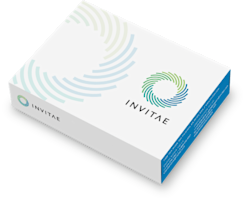
Secondary Findings Add-on
Test code: 80004 •
Test description
The Secondary Findings Add-on analyzes the 81 genes identified as medically actionable by the American College of Medical Genetics and Genomics (Miller, et al. 2023, PMID: 37347242). All individuals undergoing exome sequencing may choose to have an additional separate analysis for secondary findings at no additional charge. A separate report for each individual will be generated for this set of ACMG Secondary Findings genes, and any variants interpreted as pathogenic and likely pathogenic will be reported, including reporting of Carrier status. The decision of a proband and each family member to have this additional analysis is required at the time the test is ordered by a clinician. The additional reports evaluating the ACMG Secondary Findings genes will be released separately as independent companion reports. These genes are medically actionable, with clinical management guidelines established for their associated conditions.
Ordering information
New York approved:
YesLearn more about specimen requirementsRequest a specimen collection kitAssay information
Invitae is a College of American Pathologists (CAP)- accredited and Clinical Laboratory Improvement Amendments (CLIA)-certified clinical diagnostic laboratory performing full-gene sequencing and deletion/duplication analysis using next-generation sequencing technology (NGS).
Genomic DNA obtained from the submitted sample is prepared for sequencing using a PCR-free method and the entire genome is sequenced. While the underlying technology sequences the whole genome, analyzed targets include exons +/-20bp of flanking region, plus select non-coding variants. The Invitae Exome is designed to be sequenced to sufficient depth to ensure each base pair has a ≥99% probability to be accurately determined. This is achieved by an average coverage above 35x across our reportable range with 99.5% of the reportable range above 20x. The base pairs meeting ≥99% probability of genotypic accuracy are considered covered at high confidence. Reads are aligned to a reference sequence (GRCh37), and sequence changes are identified and interpreted in the context of a single clinically relevant transcript. Parental samples as part of trio testing are known to increase sensitivity of an exome and are always recommended when available.
Based on validation study results, this assay achieves >99% analytical sensitivity and specificity for single nucleotide variants, insertions and deletions <15bp in length. The Invitae Exome permits reliable detection of multi-exon deletions and duplications larger than 10,000 bases of genomic sequence (on average 2 exons; Piovesan, et al. 2016, PMID 28025344) with high confidence, depending on sequence context; smaller events may be detected and will be reported when sufficient resolution exists. In rare situations, single-exon copy number events may not be analyzed due to inherent sequence properties or isolated reduction in data quality.
This test is not designed to detect or report structural rearrangements (e.g. inversions, gene conversion events, translocations, etc.), copy number variants larger than a single gene (e.g. microdeletion/duplication syndromes), regions of homozygosity (ROH), indels >50bp, mosaic/somatic events, or variants in regions/genes with high homology, pseudogenes, segmental duplications, and/or repetitive regions. Additionally, it may not be possible to fully resolve certain details about variants, such as mosaicism, phasing, or expansion repeat numbers. Unless explicitly guaranteed, risk association alleles, sequence changes in the promoter, non-coding exons, and other non-coding regions are not covered by this assay. The assay does not detect variants in the mitochondrial genome.
Invitae confirms all clinically significant findings (e.g., pathogenic or likely pathogenic variants sufficient to explain the patient's phenotype) that do not meet stringent quality metrics using orthogonal technologies, except when noted in the website Exome Gene Coverage Search Tool. Genome regions not sequenced to Invitae quality standards using this technology may be excluded from analysis. Since WGS technology has no PCR enrichment of targeted regions, non-human contamination has a higher impact on overall sample quality metrics and can cause higher sample failure rates in Saliva and Buccal specimens. Therefore, blood is the preferred specimen for the Invitae Exome, when available.
The exome assay reports rare, clinically relevant variants that are classified as pathogenic, likely pathogenic, or variants of uncertain significance in genes with phenotypic overlap with the patient's phenotype and inheritance patterns that match the known gene-disease association. In addition, Invitae will also report single pathogenic and likely pathogenic variants in autosomal recessive genes when there is strong clinical overlap or when clinical overlap is weaker but treatment is available or further testing may rule the disorder in/out.
You can customize this test by clicking genes to remove them.
Primary panel
Question about billing?
Find answers